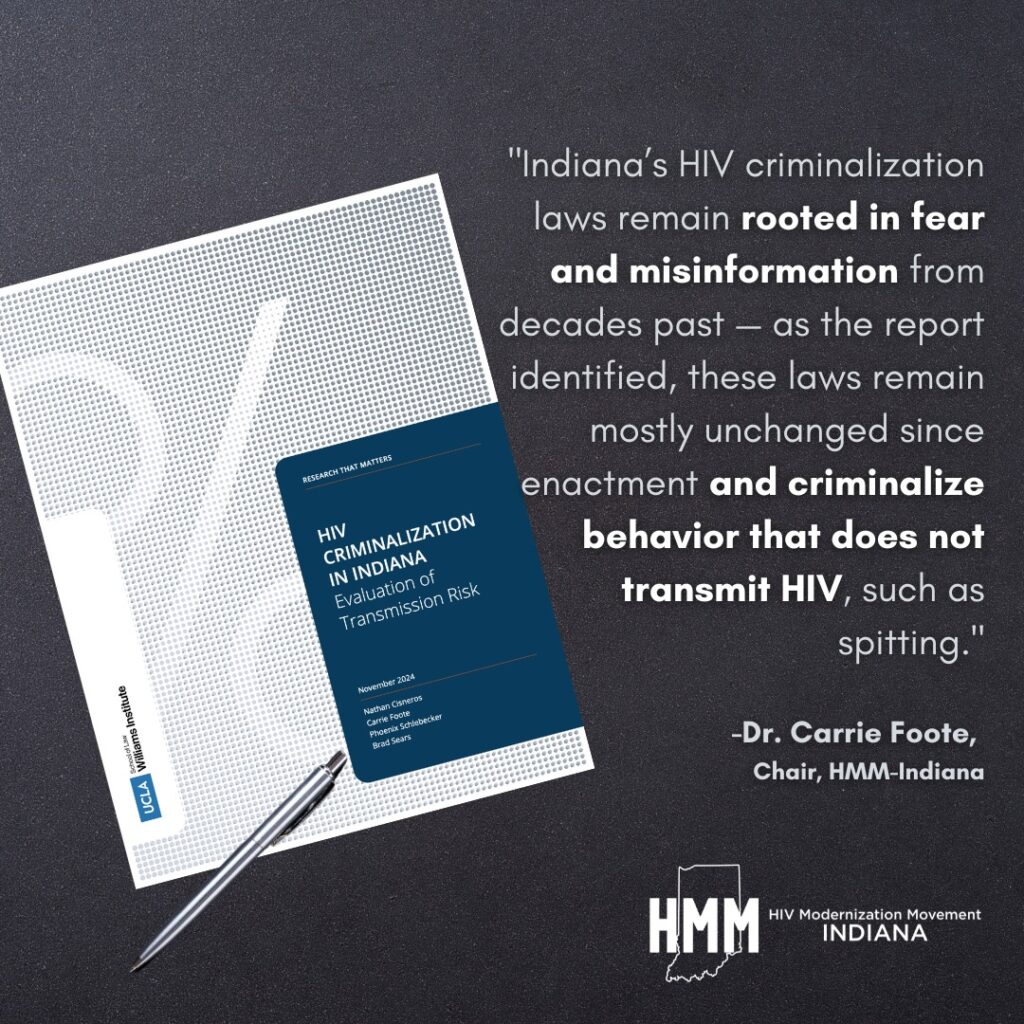
Indiana has six laws that criminalize people living with HIV (PLWH), spanning both the public health and criminal codes. A new report by the Williams Institute at UCLA School of Law evaluates whether these laws reflect current understandings of HIV science and whether they criminalize conduct that poses negligible or no negligible or no risk of transmitting HIV.
The authors, including Professor Carrie Foote (Indiana University-Indianapolis Sociology), concluded that: “Indiana’s HIV criminal laws were enacted between 1988 and 2002, a period overlapping with the height of the HIV/AIDS crisis in the United States. Thanks to advances in the science, medicine, and public health of HIV treatment and prevention, this report found that much of the conduct criminalized in Indiana’s HIV criminal laws cannot transmit HIV. Scientifically outdated laws work against public health goals regarding HIV testing, prevention, and treatment, thereby undermining efforts to end the HIV epidemic—a goal that many experts agree is supported by modernizing HIV criminal laws to reflect what is known about HIV science today.”
Professor Foote also chairs the HIV Modernization Movement-Indiana, a diverse group of community members, academics, health care providers, policy makers and people living with HIV working to modernize outdated HIV criminal laws.
Click here to read the press release and here to read the full report. The Indiana Capital Chronicle covered the news in an article and Professor Foote was interviewed about the findings on NPR WFYI.


